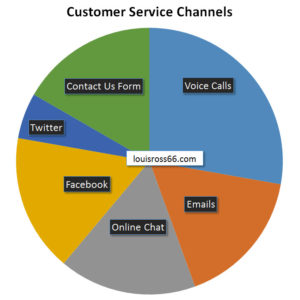In customer service there are channels (phone, email, online chat, social media, and others). Obviously, customer service is expected to handle contacts for a company that come in via these channels. As a company grows, it is common to segregate teams by channel, as there are some benefits in doing so (workforce metrics, quality improvements, and more). But this article is to caution leaders who might want to create channel specific teams too early or with teams that are too small. For a small company, if leadership creates a voice only team, or email only team, the risk is those agents sitting idle (being underutilized) when the phone is not ringing (for email agents) or when emails are not coming in (for email agents), etc. The same is true for teams that service a special function for the company (such as tech support or a VIP line). It is important that these agents stay omni-channel, or leadership will waste their talent waiting for the phone to ring (for email agents) or for an email to come in (for voice agents) etc. Specialized teams usually require higher skilled agents and these agents can handle switching between channels, going where the action is. Don’t waste your talent by limiting a skilled agent to one channel; keep them omni channel. Yes, your workforce measurement metrics will be harder to calculate, but it will be worth it. Remember, your ultimate goal is to provide great service via contacts, and that will happen more if your (best) agents are available as much as possible, regardless of channel.
